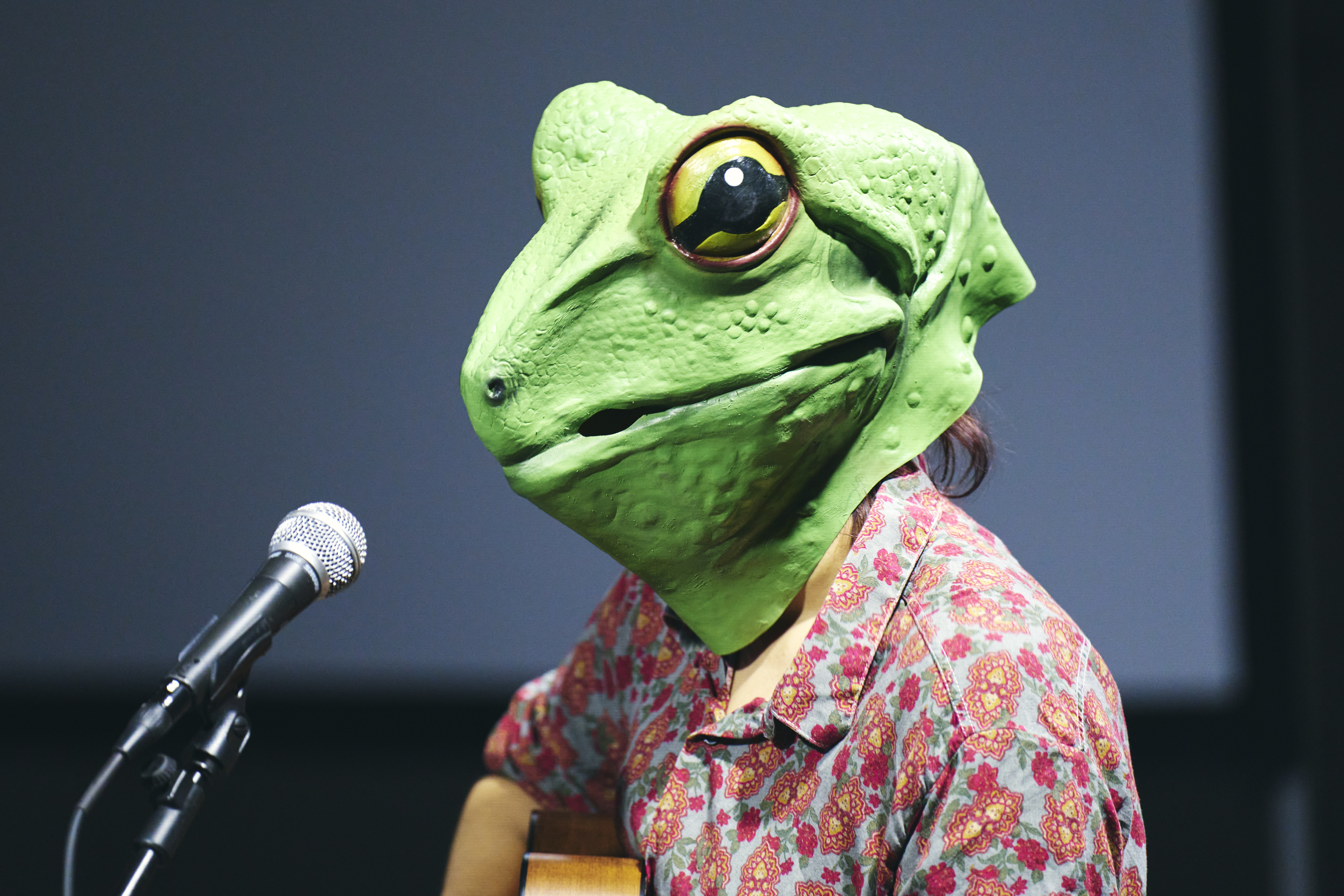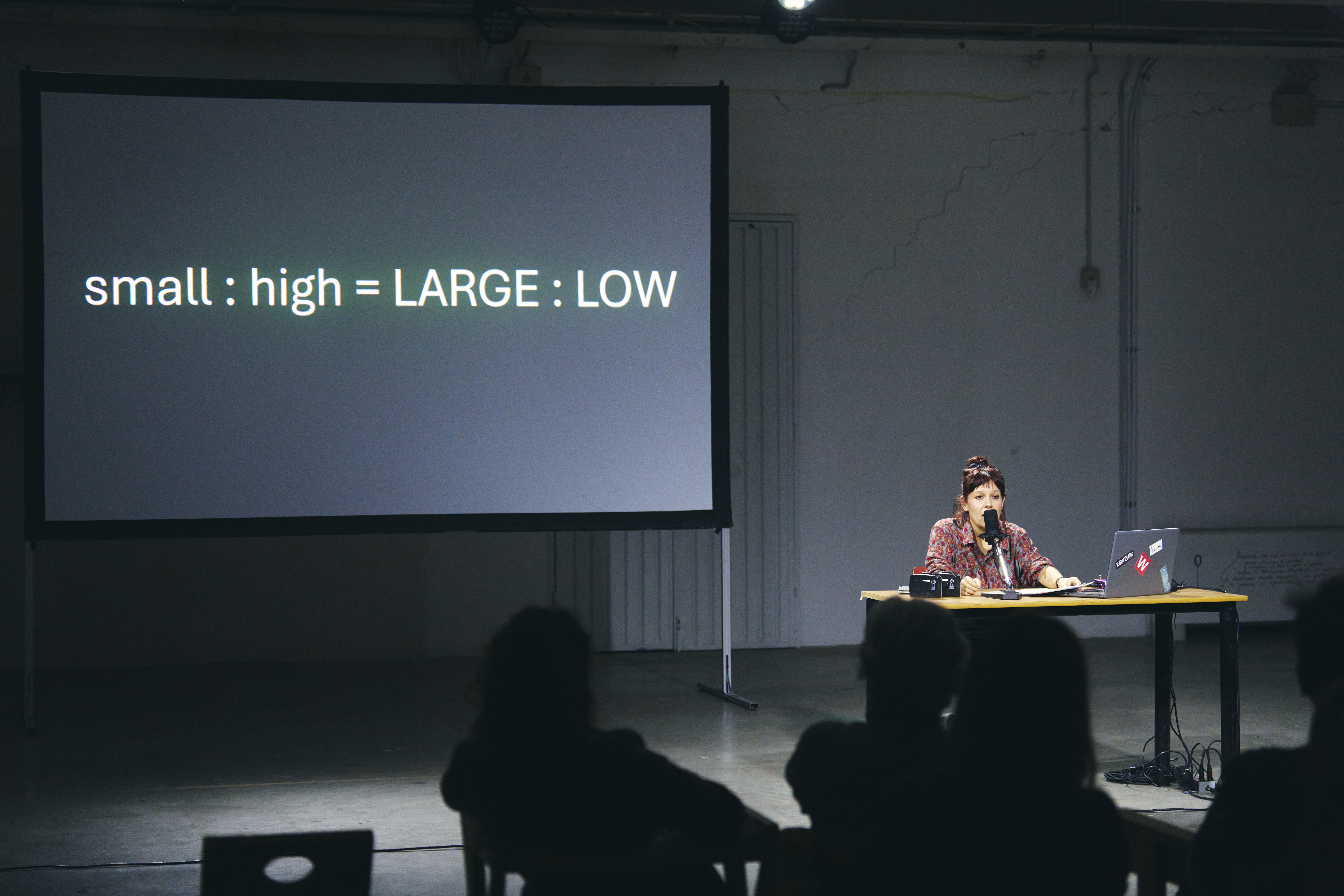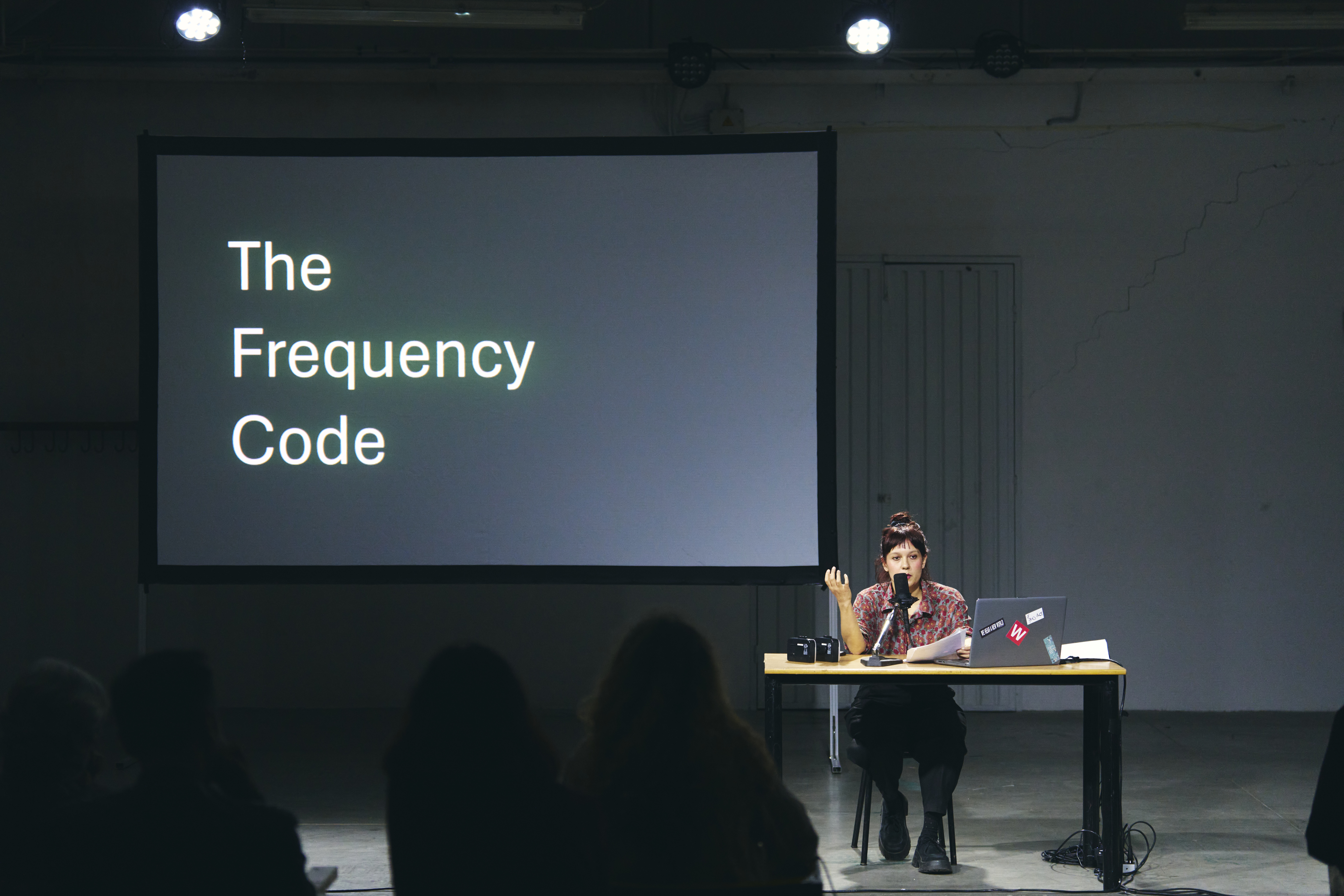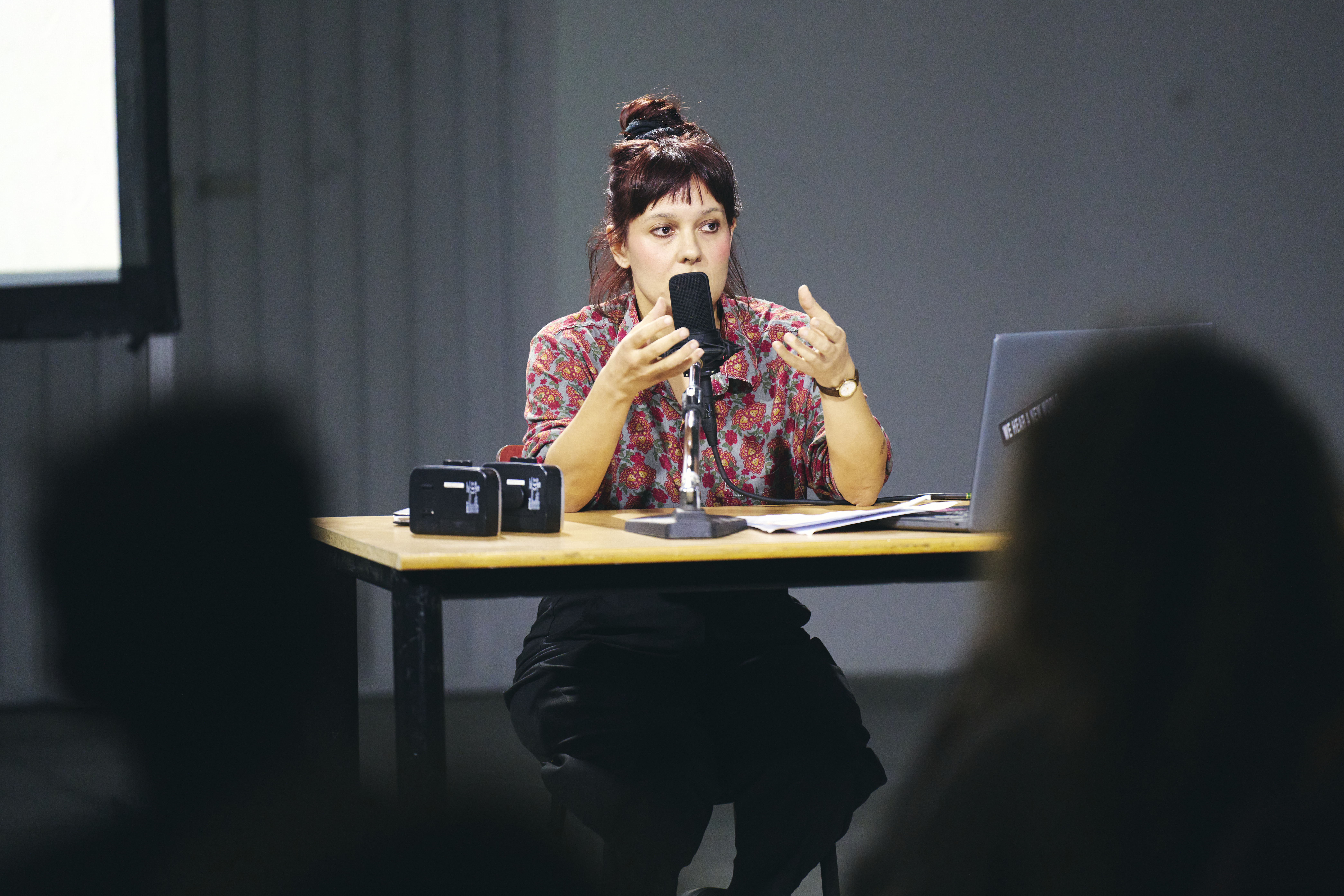PITCH
Notes on vocal intonation
Winner of the 7th Edition of Lydia Prize by Fondazione Il Lazzaretto in partnership with PAC Milan, curated by Claudia D’Alonzo
Project born as performance-lecture during an artistic residency at NUB Project Space (Pistoia) and presented at Periferico Festival, Modena, 2023
---> Converted into a video essay thanks to the grant of Lydia Prize
PREMIERE : Oct 2025, PAC - Milan

Pitch. Notes on Vocal Intonation is a video essay that investigates how vocal pitch functions as a carrier of meaning, power, and bias across species and cultures. Drawing from a range of interdisciplinary references, the work traces how intonation - particularly high-pitched vocalizations - is culturally coded and politically charged.
The essay engages with ethologist Eugene S. Morton’s research on animal communication, which shows how certain bird and mammal species use pitch to project body size in moments of conflict: lower frequencies signal threat or dominance, while higher ones are associated with submission or reduced physical threat. This bioacoustic pattern, observed in non-human animals, resonates with John Ohala’s Frequency Code theory, which suggests that humans similarly interpret low-pitched voices as more authoritative or credible, and higher-pitched voices as deferential or emotionally marked.
Bringing this into the cultural and historical domain, the essay also draws on Anne Carson’s The Gender of Sound, which examines how dominant traditions have historically censored, ridiculed, or domesticated certain types of voices—especially those perceived as too shrill, emotional, or uncontrolled—framing them as socially disruptive. Carson’s text reveals how pitch becomes a marker of normativity: whose voices are heard, trusted, or silenced is deeply tied to their tonal qualities.
Originating from the performance-lecture PITCH—commissioned by Periferico Festival (Modena, IT) and premiered at Ovest Lab in October 2023 after an artistic residency at NUB Project Space (Pistoia, IT)—the video essay was further developed with the support of the Lydia Prize. Through its interplay of theory, archival material, and speculative narration, the work explores the cultural politics of pitch as both a sonic and symbolic force.
Developed in parallel to PITCH, REASONS WHY I HATE MY VOICE is a workshop that explores the themes of the research through collective listening, discussion, and vocal experimentation.
PREMIERE on Oct 4th at PAC - Milan
Pics from the perform ance lecture at PERIFERICO Festival, 2023
by Dante Farricella



